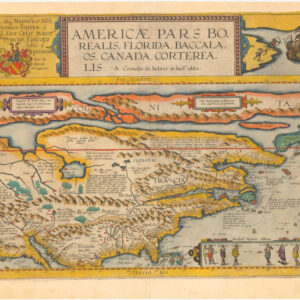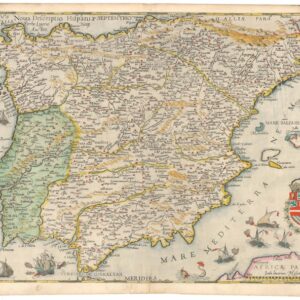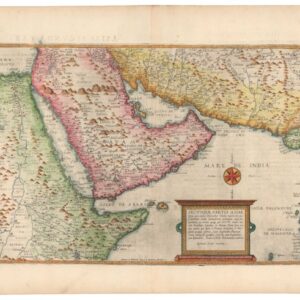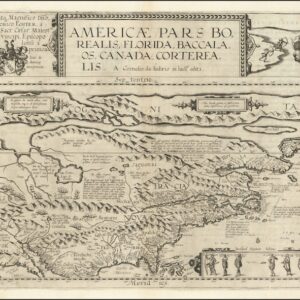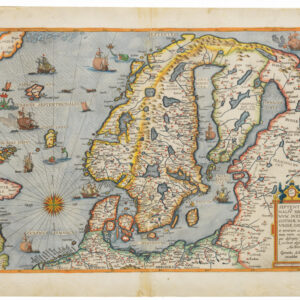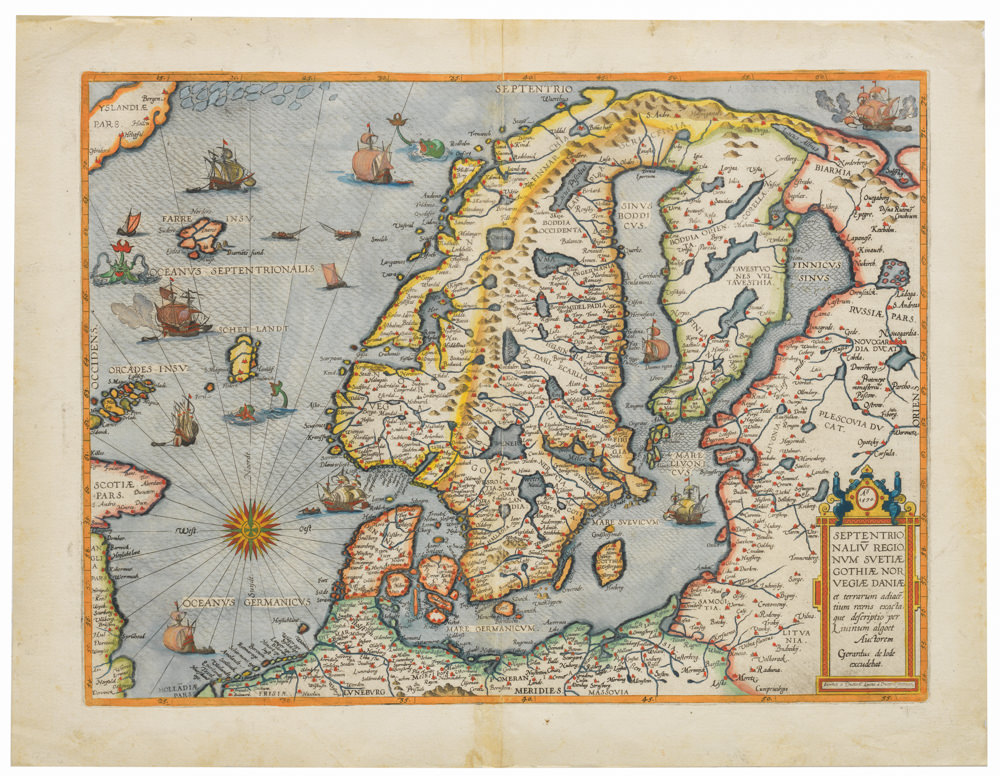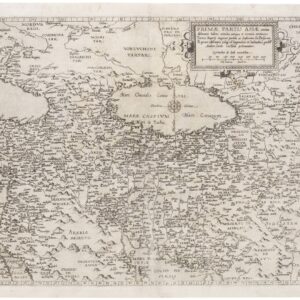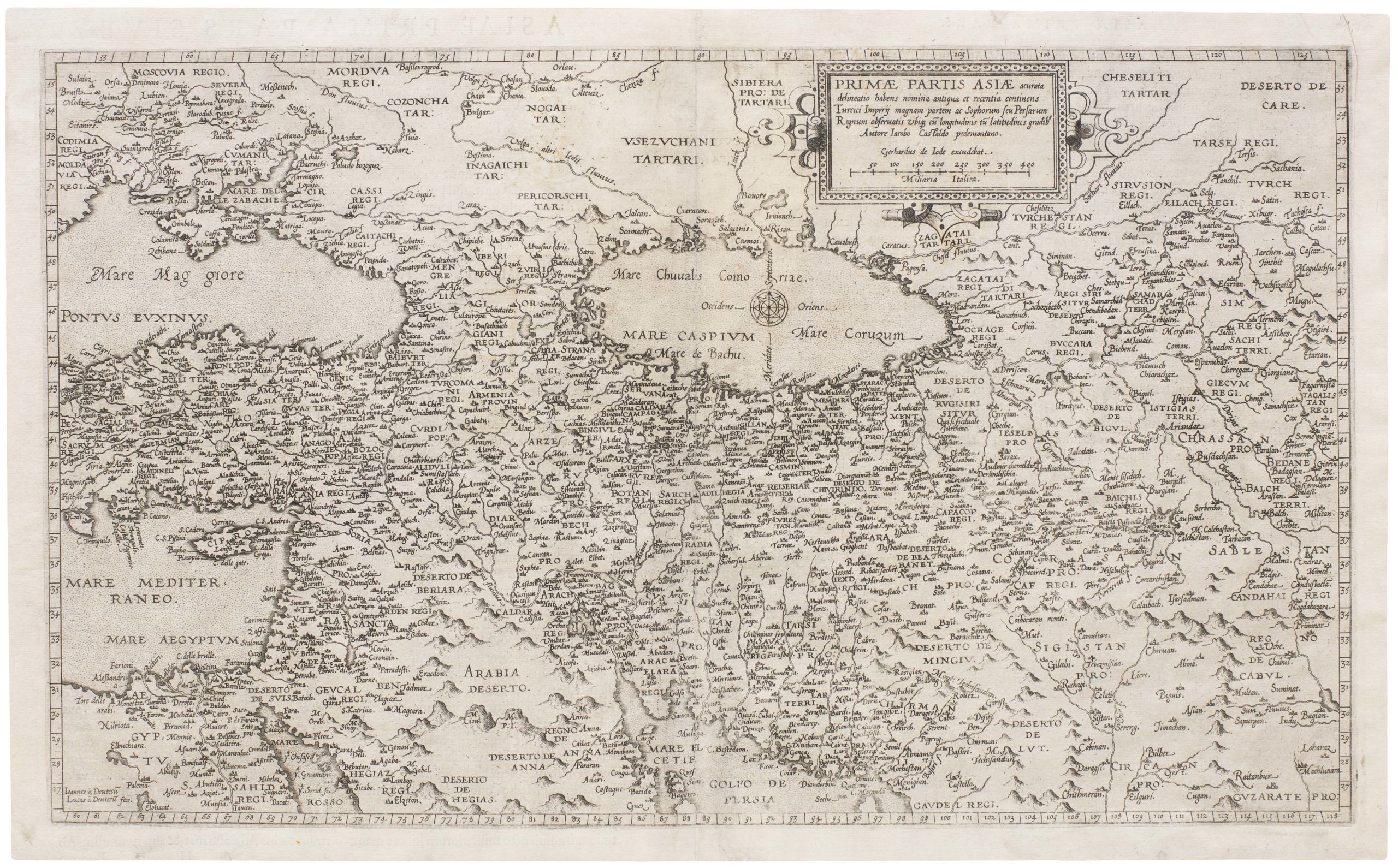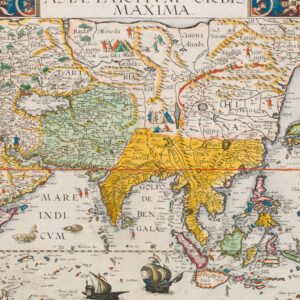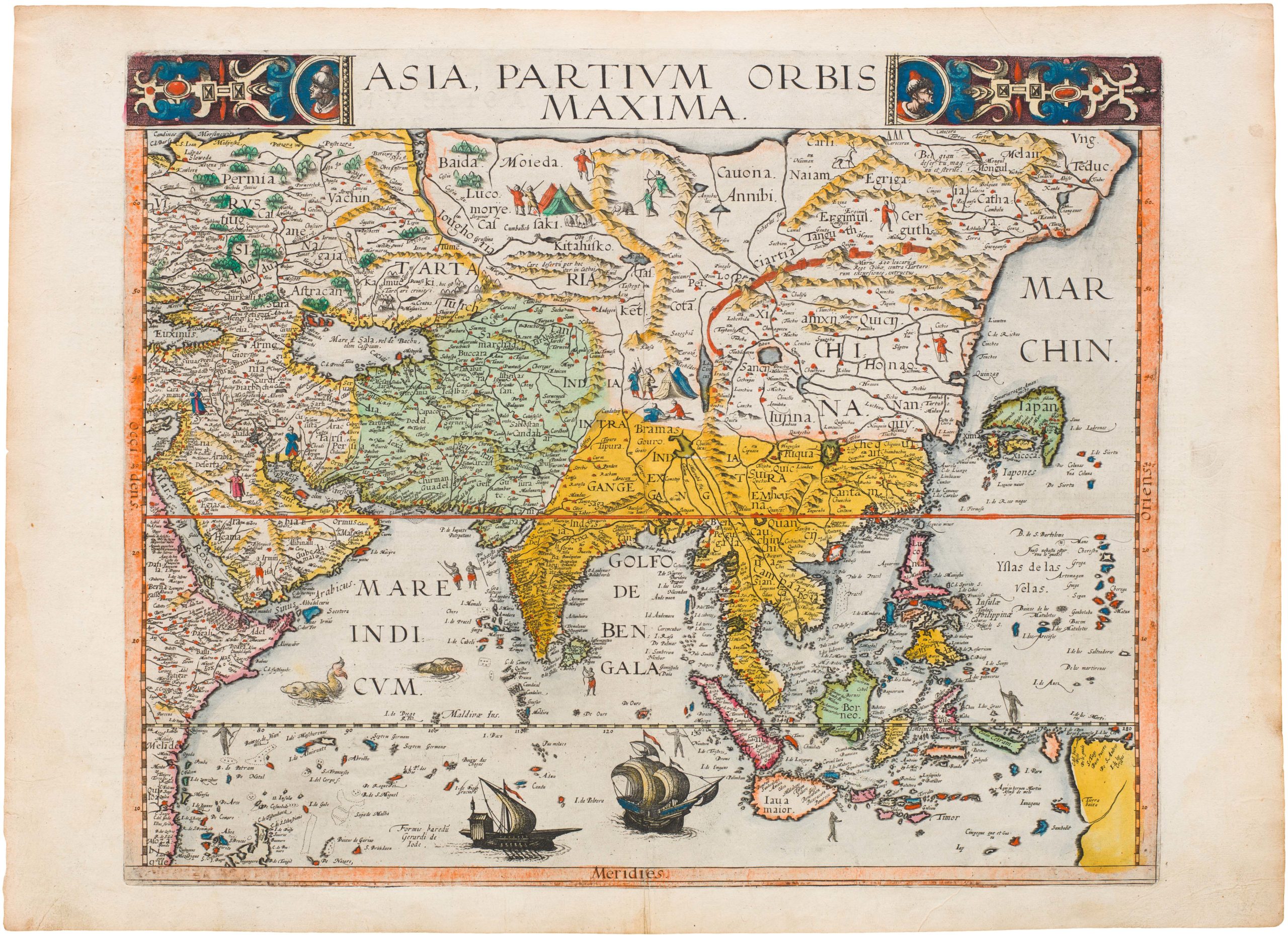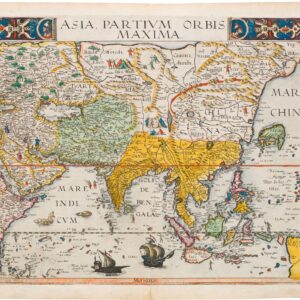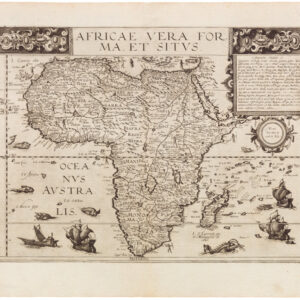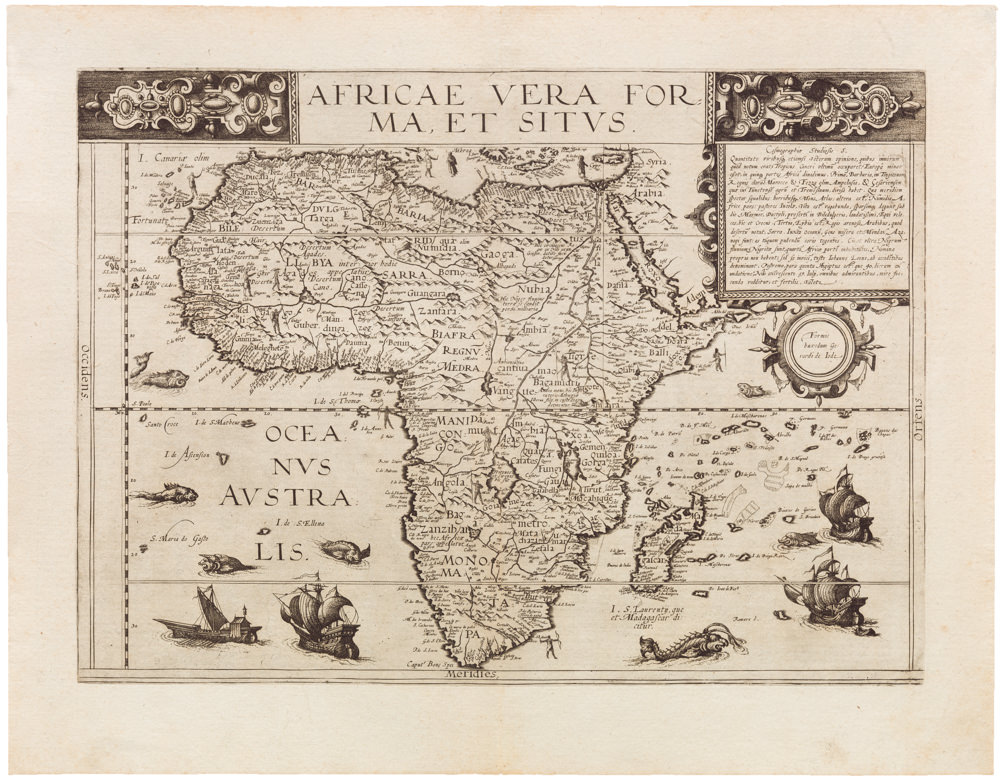Gerard de Jode (1511-91) was a Dutch printer and mapmaker born in Nijmegen, but working from the metropolis of Antwerp. One of the most competent and reputable Dutch cartographers of the 16th century, he did not fare so well business-wise, as competition was stark and his mercantile sense perhaps not so shrewd. In 1547 he was accepted into the Guild of St Luke’s in Antwerp and began working as a publisher and printer. De Jode quickly gained recognition as an expert mapmaker in a city that was already renowned for its cartographic output. His greatest achievement was a magnificent two-volume atlas entitled Speculum Orbis Terrarum, which came out in 1578. The idea was to create an atlas that could compete with Abraham Ortelius’ hugely popular Theatrum Orbis Terrarum, which had been published to great acclaim only eight years earlier. Despite De Jode’s status and reputation, however, his atlas was not a commercial success. The lack of circulation in 1578 has had a lasting legacy today, as it is now one of the rarest and most sought-after atlases, with only about a dozen copies known to exist.
Despite this lack of commercial success (or perhaps because of it), Gerard began working on a new and revised atlas. For this task, he recruited his son, Cornelis De Jode (1568-1600), as an assistant, and together they compiled another outstanding and innovative atlas entitled Speculum Orbis Terrae, which was published in 1593. Sadly, Gerard de Jode died of old age a little less than two years before its publication, but perhaps he was spared the embarrassment of another commercial failure. Even though the new atlas contained both Gerard’s original maps, it also included several key revisions, and perhaps most importantly, a range of entirely new maps compiled by Cornelis himself.
Like their 1578 predecessors, these 1593 maps are also scarce, especially since after Cornelius’ death, the engraving plates were sold to his competitor, J. B. Vrients (who also owned the Ortelius plates), who assured the complete work was never published again. Thus, while numerous editions of Ortelius were published and survive today, only the 1578 and 1593 editions form part of the legacy of the De Jode family.
-
-
Add to cartQuick View
- Americas, Featured Maps & Views, North America
Americae Pars Borealis, Florida, Baccalaos, Canada, Corterealis. A Cornelio de Iudaeis in luce edita.
- $34,000
- The first printed folio map of North America and the most iconic American chart of the 16th century.
-
Add to cart
-
-
Add to cartQuick View
- World, Featured Maps & Views, Polar - Arctic
Hemispheriu Ab Aequinoctli Linea, Ad Circulu Poli Arctici/ Hemispheriu Ad Circulu Poli Atarctici.
- $57,500
- A superb example of De Jode’s seminal polar projection of the world.
-
Add to cart
-
-
Add to cartQuick View
- Europe, Spain & Portugal
Nova Descriptio Hispaniae.
- $3,800
- One of the finest maps of the Iberian Peninsula ever produced, in excellent original color.
-
Add to cart
-
-
Add to cartQuick View
- Arabia and the Red Sea, Middle East - Holy Land Maps
Secundae Partis Asiae.
- $7,000
- De Jode's extraordinary map of Arabia -- among the finest maps of the region on the market.
-
Add to cart
Archived
- Out of Stock
- Americas, Featured Maps & Views, North America
Americae Pars Borealis, Florida, Baccalaos, Canada, Corterealis. A Cornelio de Iudaeis in luce edita.
- A fine original black-and-white example of the first printed folio map of North America.
- Read moreQuick View
-
- Out of Stock
- Iceland & Scandinavia
Septentrionaliu regionum Svetiæ Gothiæ Norvegiæ Daniæ
- Gerard de Jode’s iconic Scandinavia chart: a testimony to undervalued genius.
- Read moreQuick View
-
- Out of Stock
- Asia
Primae Partis Asiae accurata delineatio…
- Rare 1593 de Jode map of the Black and Caspian Seas, with the eastern Mediterranean and a prominent Cyprus
- Read moreQuick View
-
- Out of Stock
- Asia, Featured Maps & Views
Asia, Partium Orbis Maxima
- Spectacular old color 1593 De Jode map of Asia, with important depiction of Taiwan and the Great Wall of China.
- Read moreQuick View
-
- Out of Stock
- Africa
Africae Vera Forma, et Situs
- Cornelius de Jode's superb 1593 map of Africa.
- Read moreQuick View
-
